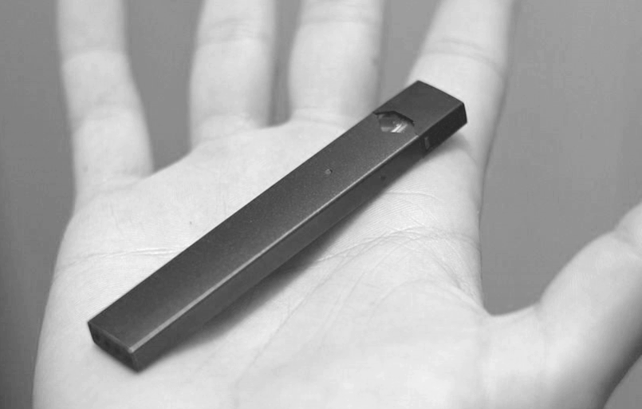This month, in light of increasing e-cigarette use among teenagers, my son’s weekly high school newsletter has been providing facts about the harmful effects of juuling, or vaping. As a parent of two teenagers, I have witnessed first-hand, the relationships among e-cigarettes, drug addiction, and mental health disorders. If your kids are juuling, there may be more serious underlying issues.
My kids, like most teenagers, seem to be under the impression that their parents were born full-grown adults who have never experienced peer pressure, bullying, depression, or anxiety. While these things have plagued teenagers since the beginning of time, I will admit that they do seem to be far more prevalent in my children’s generation. Kids today also seem far less able to cope with them and more likely to turn to e-cigarettes, alcohol, and other drugs. I believe the added influence of technology is to blame.
While it’s hard to imagine life without technology now, I’m glad I grew up in a time without cell phones, the internet, and social media. There is a sense of self-sufficiency, confidence, and civility that comes from having to communicate with people face-to-face or having to find one’s way from point A to point B by looking at a map or asking someone for directions. Instead, our children lack communication skills, confidence in their abilities, and empathy for others. They also have great anxiety about doing anything for themselves. They hide behind superficial and often cruel text messages and social media posts. They avoid eye contact and real social interactions. They rely on the internet and GPS to do everything for them.
To cope with all of this, along with the usual pressures of school and the additional fear of school shootings, it’s no wonder teens turn to e-cigarettes for stress relief. The Juul, with its enticing flavors and resemblance to a USB drive, is particularly attractive to tech-savvy teens. It’s also more harmful than they realize. According to a Truth Initiative study, 63% of teens and young adults did not know that Juul pods always contain nicotine. In fact, the Truth Initiative states that the amount of nicotine in one Juul pod is equivalent to the amount of nicotine in a whole pack of cigarettes.
Kids who use e-cigarettes put themselves at risk for nicotine addiction as well as addiction to other drugs. The National Institute on Drug Abuse (NIDA) points out that prolonged e-cigarette use can cause other drugs such as cocaine and methamphetamine to have a more pleasurable effect on a teen’s developing brain. NIDA also states that nicotine can have other negative effects on the brain such as attention and learning difficulties, as well as mood disorders and impulse control problems leading to self-harm or harm to others.
My daughter, who developed bipolar disorder as a teen, used e-cigarettes prior to using marijuana. She smoked marijuana prior to smoking and then injecting crystal meth and heroin. She would roll her eyes at me when I used the term “gateway drug” because she thought e-cigarettes and marijuana were harmless. According to a National Public Radio article, fewer teens believe marijuana is harmful to their health today than the mid-2000s. The article suggests that legalization of the drug may lead to this perception.
My state, which legalized marijuana in 2014, also fares far worse when it comes to e-cigarette use among teens. In Colorado, 26% of high school students used e-cigarettes in 2017 compared to 11.7% of high school students in the nation, according to Tobacco-Free Kids statistics. Colorado is also one of the worst states in the nation when it comes to the prevalence of mental illness, substance abuse, and access to care for youth, according to a 2018 report from Mental Health America which ranked Colorado almost dead last at 48th.
Because juuling can be an indicator of an underlying mental health issue like depression or anxiety and can lead to other substance abuse addictions, I’m proud of my son’s school for recognizing this growing problem and alerting parents and students to its dangers.
For more information about the harmful effects of juuling, visit the American Cancer Society.



